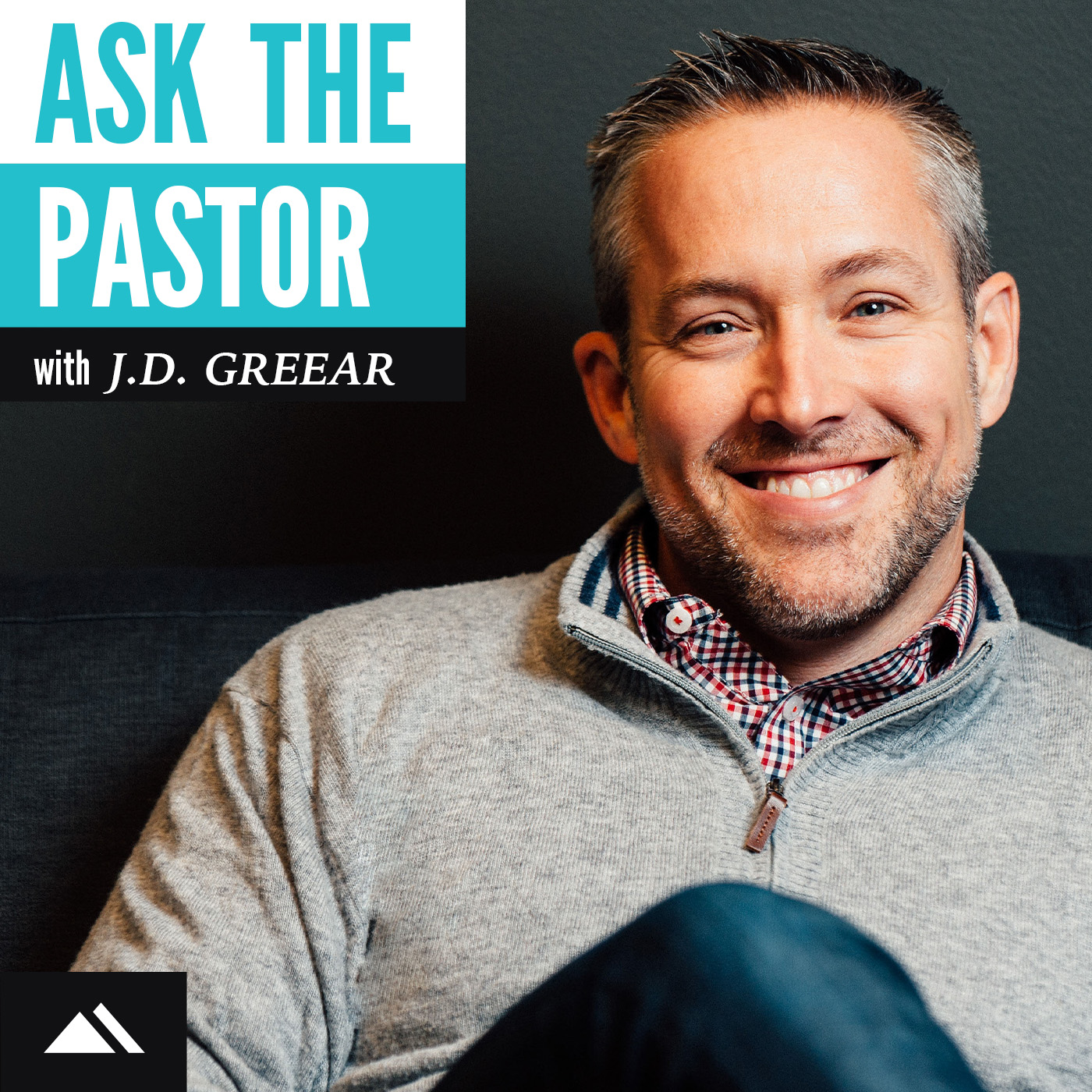

Ask the Pastor with J.D. Greear
J.D. Greear
Ask the Pastor with J.D. Greear is a weekly podcast that answers tough questions and tackles relevant issues in a way that is filled with grace, understanding, and wisdom from God’s Word. Hosted by Matt Love.
Episodes
Mentioned books

Jun 17, 2019 • 14min
Aren’t Short-term Mission Trips a Big Waste of Money?
Pastor J.D. discusses some of the major objections to short-term mission trips and how we can participate in and facilitate them wisely.

Jun 10, 2019 • 14min
What Do You Do if You Find Out About Sexual Abuse Situations?
Pastor J.D. shares four important things to keep in mind when responding to instances of sexual abuse. Note: If you heard Pastor J.D. answer this question last week, please go back to make sure you also listen to "What is the greatest need in the American church?"

Jun 3, 2019 • 13min
What Is the Greatest Need in the American Church?
Pastor J.D. explains that the gospel must be of first importance, both empowering and informing the church.

May 27, 2019 • 10min
Is Faith a Gift of God?
Pastor J.D. talks about the three kinds of faith we see in the Bible and how that faith is a gift in various ways.

May 20, 2019 • 13min
What Would You Say to an Atheist?
Pastor J.D. shares four questions that are helpful to start a conversation with our atheist friends, neighbors, and coworkers.

May 9, 2019 • 11min
Should I expect to feel satisfied by my job?
Pastor J.D. explains why we both should and shouldn’t feel satisfied by our jobs because God created us to work, but our work here on earth is toil.

May 3, 2019 • 11min
Do you do family devotions? What are some examples of family discipleship?
Pastor J.D. discusses the role of the family in the growth and discipleship of children and shares some practical tips.
A glimpse inside this episode:
God gave the home and family as one of the two “gospel gardens," the church being the second. The ultimate job of parenting it to let go and to send out.
Studies show the quality of the relationship not the depth of instruction is the determiner. Sociologist Vern Bengtson says in his book, Families and Faith, that studies conclusively show that the quality of the child’s relationship to the father is the single-most important factor in whether the child adopts the faith of the parents.
But what does this look like practically in the Greear household?
When they were young, every day. Now, once a week: Dad, devotion, dessert.
Allows me to plan. We study books of the Bible, and I jot down thoughts throughout the week.
Try to pray with my kids once a week.
I make sure they are equipped for quiet time. The Christian life has to grow from within, so I want to equip them but allow the Spirit to do what only the Spirit can do.
________________________________________________________________________________________________________
This Episode's Sponsor: One of the greatest predictors of a disciple’s spiritual growth is regular Bible reading. That’s why LifeWay created the Daily Discipleship Guide. To download four free sessions of the Daily Discipleship Guide, visit BibleStudiesforLife.com/DDG.

Apr 29, 2019 • 12min
What’s your best advice for newlyweds?
Pastor J.D. shares his advice for newlyweds and we share an important podcast update you won’t want to miss.

Apr 22, 2019 • 11min
How do you persevere in ministry in times of heavy criticism?
Pastor J.D. discusses why it’s important to remain rooted in your identity in Christ and look for the helpful truth, even in the most mean-spirited critiques, when you’re in a season of heavy criticism.

Apr 15, 2019 • 14min
How do you read when you’re so busy?
Pastor J.D. shares how he makes time for reading and other advice he’s found helpful to remain an avid reader.


